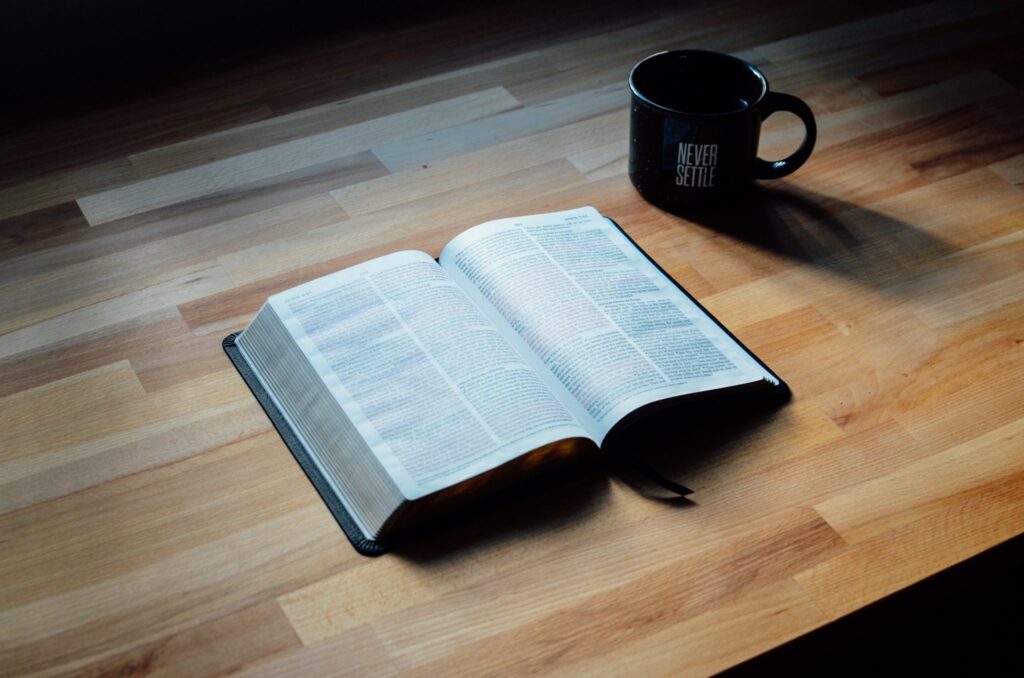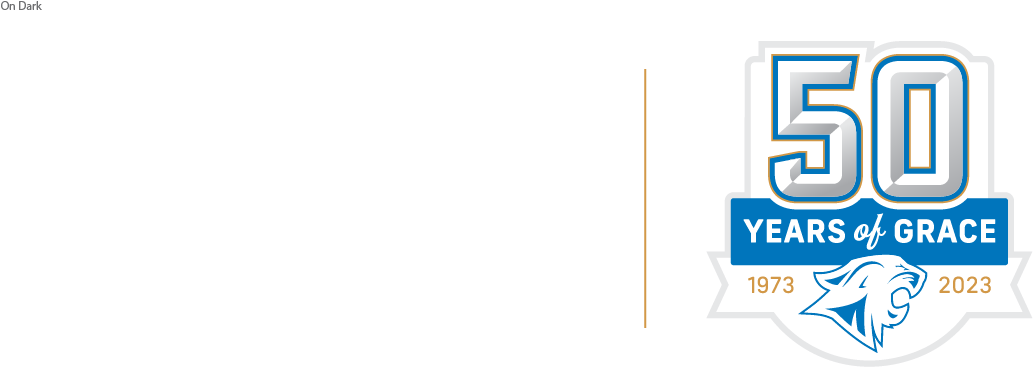Jay Blogs – Wise Stewards

Every morning this year I have been engaged in an ancient process called lectio divina. It’s a form of Bible reading, but instead of reading large daily passages of Scripture, like “the Bible in a year,” lectio divina (which means “divine reading”) involves reading short passages, often just a few verses, asking the Lord to speak through the detail, all while meditating on specific words and phrases in the passage.
This morning I was reading Psalm 65:
those who dwell at the ends of the earth are in awe at your signs.
You make the going out of the morning and the evening to shout for joy.
You visit the earth and water it;
you greatly enrich it;
the river of God is full of water;
you provide their grain,
for so you have prepared it.
You crown the year with your bounty;
your wagon tracks overflow with abundance.
At Grace, we teach the great story of Scripture, and in that process, we talk about what we call “the four relationships.” This is the idea that God created humans in His image, and to be in right, full relationship with God, with each other, with ourselves, and with creation. These relationships, as God originally created them, were whole, complete, and perfect. After humans fell into sin, all of those relationships were broken and distorted. Humans lived in rebellion against God, and in separation from Him. As a result, they warred with each other, and lived in interpersonal conflict. They lost a sense of their personal identity, at times believing themselves pridefully like God, at other times falling into depression, anxiety, and a host of other issues stemming from that loss. Finally, humanity’s relationship with creation was broken, causing people to not always enjoy and use the earth wisely, but to abuse and take advantage of it for their own gain. At other times humans found themselves victim to a creation now broken and distorted by the gravity of man’s sin, subject to storms and viruses, pestilence and flooding.
Of the four relationships, the one I probably pay the least attention is my relationship with creation. This may be true for many of us. I was thinking about the state of this relationship as this week, nations from around the world are gathered together in Glasgow, Scotland for COP26. COP26 is a multinational climate summit, whereby 190 nations are gathered to determine whether they can agree on limiting emissions that scientists say may have an impact on the planet overall, keeping it from heating an average of 1.5 degrees. This sounds like a tiny change in temperature, but according to the COP26 website, this difference will significantly reduce flooding, brushfires, extreme weather, and destruction of species. Experts are divided as to how successful this summit will be, but all seem to degree there is a sense of urgency attached to it.
If you’re like me, this all seems pretty overwhelming. First, I know there are all kinds of political arguments and narratives attached to issues regarding not just climate change, but the whole subject of protecting the earth’s environment. Secondly, “the earth’s environment” seems like a topic so completely overwhelming that there isn’t anything I, some middle-aged dude in Tyler, Texas, could do anything to help. Could anything I do personally really add or take away from this global situation in any way? Do I make any difference whatsoever?
It’s in moments like this that I’m grateful for God’s Word, allowing us to penetrate political rhetoric and competing narratives, and simply ask what God has to say about His creation and our response to it. In the beginning, Genesis 1:28 tells us that God charged the first man and woman to be fruitful and multiply, to fill the earth and subdue it. Humans are the only creation made in the image of God, and as the height of His creation, God’s command means our primary role in relationship to the earth is to steward it, to care for it, to tend it on behalf of God, its rightful owner. Like a trustee, we’re charged by God to take good care of the earth, to help it grow, to use our gifts and talents and abilities to take what God created as good and make it very good by unfolding its potential- taking wood and making furniture, bringing vegetables and fruit from the soil, taking eggs and making omelets, using clay to create sculpture.
In the midst of our sin and fallenness, our selfishness and greed, we take more from the earth than we need. We exploit it, and use it to exploit others. We make selfish decisions that have consequences over the earth. Humans have the ability to be good stewards or bad ones. That’s what the Parable of the Talents was all about. And, when humans are bad stewards over the earth, it impacts creation and makes life a little less enjoyable, and a little less livable, than it was before (and for some plants and animals, way less livable). To the extent our decisions as humans impact creation around us, contributing to additional disasters like flooding, storms, and fires, the poorest among us (those who statistically contribute around 10 % of the emissions the climate summit is talking about) are those who have the fewest resources to deal with these consequences.
So, as Christ’s Church, as God’s redeemed image-bearers, as those who, as NT Wright says, are to be “signposts of righteousness,” pointing to the way things once were and will be restored again to perfection by God’s grace, how are we to care for and steward the earth well? How can we bring justice in Christ’s name to this situation? How can we make a difference with regard to God’s creation?
The first, most important thing we can do is pray. Praying fervently, passionately, persistently, and expecting that God will do something is the most powerful thing we can do. We have been given access to the throne room of God through Christ, to come to our Father and ask Him to move in the hearts of rulers and to change the course of history. Our God is a Father who loves giving to His children when they ask according to His will and in His Name. We have to bring a heart of repentance for our own brokenness and the sin of our people which led us to this point, but just as God had mercy according to the prayers of Abraham, Moses, and Daniel, He will respond to your prayers, too. He does not love you less than they. We can ask Him to move in the hearts of leaders to make wise decisions, to renew our world, and to move in the hearts of humans worldwide as they make decisions to care for creation around us.
The second thing we can do is enjoy and be grateful for creation, and worship God through it. One of the greatest ways we can be wise stewards of creation is to realize that God created it, in part, for us to enjoy, to reveal His nature and character to us, and to speak to our hearts. Most of the time we get so very busy with life that we don’t take the time to stop, to watch, and to listen. Think about the color, the vibrancy, the diversity, and abundance of creation, and how God reveals Himself to us through it. Think about standing on top of Pikes Peak, or listening to the waves relentlessly pound the shoreline, or watching birds teem, flying in such number they fill your entire field of vision. Whether it’s underwater at Cozumel, Big Bend, the Canadian Rockies, or anywhere else you’ve seen the majesty of nature, reflect on it, and be grateful God has given it to us. Even the feeling of working the earth in your backyard and bringing something forth from it is an opportunity to worship the Giver of all good things, and to praise Him for His creation. All are occasions to slow down, to listen, and to see what He might be wanting to tell or to teach you through it.
One other thing we can do is simply trying to be a wise steward of God’s creation in my corner of the world. I can’t change the world single-handedly, but I can change me. One of the blessings and privileges of living in a highly-developed country is enjoying technology that allows us to make choices that are more creationally-sustainable than others. But, they’re not always the cheapest, quickest, and easiest choice, and who doesn’t like cheap, quick, and easy? Sometimes I may have to exchange one of those values for good stewardship. So, I have to ask myself: Am I, personally, a good steward of God’s creation? Is my family? Am I teaching them what it means to be good stewards? This, of course, means everything from how we consume resources, to how we marshal God’s creatures and the land, to, as above, whether I’m using the things of the earth in a sustainable manner.
At the end of the day, I probably won’t be held accountable to God for the entirety of creation. But I will be held accountable as to how I shepherded my own relationships with Him, with those around me, with my own identity, and with creation. I want to be found wise in caring for all those with whom God has entrusted me.
Jay Ferguson, Ph.D., Head of School at Grace Community School, writes regularly on his blog, JaysBlog.org.
